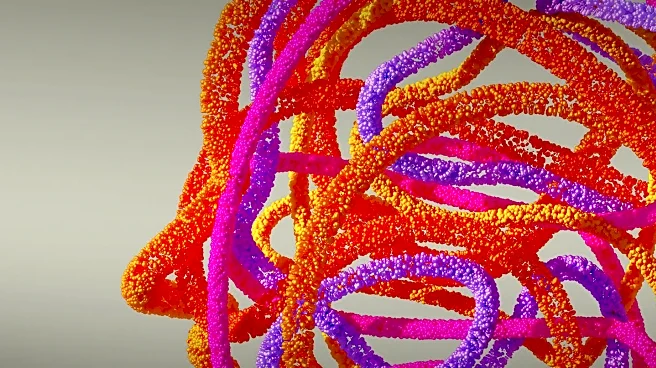What is the story about?
What's Happening?
A study led by Professor Takuya Takahashi from Yokohama City University has identified a potential molecular basis for the cognitive impairment known as 'brain fog' in Long COVID patients. Using [11C]K-2 AMPAR PET imaging, researchers found an increase in AMPA receptor density in the brains of Long COVID patients, correlating with the severity of cognitive symptoms. This discovery provides a biological explanation for brain fog and suggests that targeting AMPARs could be a viable treatment approach.
Why It's Important?
Understanding the molecular basis of Long COVID brain fog is crucial for developing effective treatments and diagnostic tools. This research could lead to new therapies that alleviate cognitive symptoms, improving the quality of life for millions affected by Long COVID. The findings also underscore the importance of continued research into the long-term effects of COVID-19, as the condition poses significant public health and socioeconomic challenges. The study's insights could accelerate the development of targeted treatments, offering hope to those suffering from persistent symptoms.
What's Next?
Further research is needed to explore potential treatments targeting AMPARs and to validate these findings in larger patient populations. The healthcare industry may need to prioritize the development of diagnostic and therapeutic approaches for Long COVID, given its widespread impact. Collaboration between researchers, healthcare providers, and policymakers will be essential to address the ongoing challenges posed by Long COVID and to ensure that patients receive the care they need.














